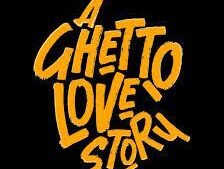Reviews
User Score
Rate This
Descriptions:
Hey everyone! Let’s dive into Lisabi: The Uprising and its sequel Lisabi: A Legend is Born—two films that set out to tell the story of one of the Yoruba people’s greatest folk heroes, but end up struggling under the weight of their own ambition. There’s a lot to unpack here, so let’s get into it.
Starting with The Uprising, there’s no denying that the vision was bold. The story follows Lisabi Agbongbo-Akala as he leads his people against the oppression of the Oyo Empire. It’s rich with themes of courage, unity, and cultural pride. On paper, it’s everything you want in an epic. Visually, the filmmakers did a lot right—authentic costumes, stunning locations, and the commitment to Yoruba culture and language shine through.
But even with all that, the film struggles where it matters most: emotional depth and narrative flow. Despite the gorgeous set pieces, the story itself feels detached. Lisabi’s transformation from witness to revolutionary leader should’ve been stirring—but the character development just isn’t strong enough to get us there. Moments that should hit hard—like rally speeches or the suffering of the Egba—fall flat because they don’t build naturally.
The performances are strong in places. Ibrahim Chatta absolutely steals the show as the brutal tribute collector Sangodeyi, bringing intensity and menace to every scene he’s in. Lateef Adedimeji brings a commanding presence as Lisabi but struggles with the emotional arc, mostly because the script doesn’t give him enough to work with. Liquorose and Mr. Macaroni surprise in their supporting roles, proving they have acting chops beyond their known personas.
Technically, The Uprising is a mix of brilliance and frustration. The production scale is massive for Nollywood—over 3,000 extras, impressive production design—but the excessive use of CGI and constant slow-motion scenes drag it down. The CGI, especially during spiritual scenes, looks out of place and cheapens what should have been magical, immersive moments. The pacing is uneven, making it hard to stay fully engaged.
Now onto A Legend is Born. After The Uprising, this sequel had a lot to prove—and sadly, it falls even harder. Instead of correcting the issues of the first film, A Legend is Born amplifies them. It picks up after the Egba’s victory, shifting focus from external battles to internal betrayal and Lisabi’s personal downfall. On paper, it should have been powerful—a story about pride, leadership, and tragic flaws.
But again, the film stumbles. The pacing is sluggish, the character motivations feel forced, and the emotional beats are even more disconnected than before. The first half of the film drags with endless battle scenes and flashy but empty slow-motion shots. By the time the betrayals unfold, it’s hard to care because the groundwork wasn’t properly laid.
Lateef Adedimeji tries to carry Lisabi’s arc, but the shift from noble hero to arrogant leader doesn’t feel earned. His chemistry with Mo Bimpe, who plays Ikeola, is practically nonexistent, making key emotional scenes—like her death—fall flat. Supporting characters pop in and out without much impact, and many promising talents like Gabriel Afolayan and Odunlade Adekola are wasted.
Technically, A Legend is Born suffers from the same issues as its predecessor—poor CGI, questionable editing choices, and a soundtrack that sometimes drowns out dialogue. There are small wins, like some haunting practical effects and a few striking visuals, but overall, the technical execution feels sloppy and distracting rather than immersive.
Final Thoughts
Both films aimed for grandeur but forgot the basics: a tight story, meaningful character arcs, and emotional investment. The Uprising was ambitious but clumsy; A Legend is Born is even more unnecessary, stretching a fascinating historical myth into a disjointed, hollow retelling. What should have been an emotional epic about leadership, loyalty, and legacy ends up feeling like a missed opportunity—twice.
So, what did you think? Did you find any redeeming qualities in either film, or were you just as frustrated by the missed potential? And if you could reimagine Lisabi, what would you do differently? Let’s talk about it in the comments below.
And don’t forget to like, comment, and subscribe for more honest reviews like this. See you next time!







